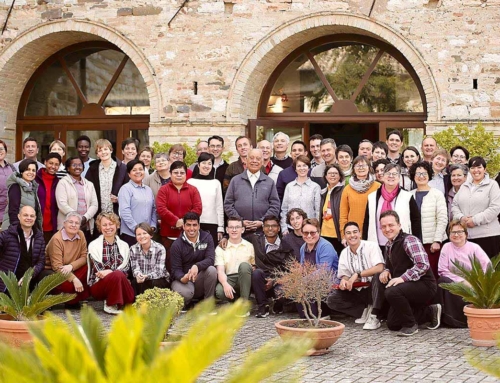13th SUNDAY IN ORDINARY TIME (A)
Sunday 2 July 2023
Matt 10:37-42
“Whoever loves father or mother more than me is not worthy of me; and whoever loves son or daughter more than me is not worthy of me; and whoever does not take up the cross and follow me is not worthy of me. Those who find their life will lose it, and those who lose their life for my sake will find it.”
(Matt 10:37-39)
Jesus moves among the cities and villages across the area around Capernaum, the city were He was living (Matt 4:13). There He taught, announcing the Kingdom, and healing every illness and infirmity (Matt 9:35). He works signs that no one else had ever done and, at the same time, He teaches with an authority never seen before. His discourses aren’t all light and heartening. At times, they reveal ‘demands’ that are sometimes difficult to accept, all the more so because of the mentality prevalent today (at least in the West), which tends to relativise everyone and everything, even in the religious environment. In other words, Jesus is welcomed until He claims that He is unique: “I am THE Way…”.
Throughout Matthew’s Gospel, the term ‘worthy’ occurs just seven times, three of which are found in this brief passage. The Greek term for ‘worthy’ is àxios, which literally points to striking a balance on a set of scales, by elevating the other plate. We can say then that in order to “be at the level of Jesus”, to be able to become friends with Him, we need to “elevate” our relationship with Him, loving Him above all else, even
- more than our father and mother, those who brought us in to this life, who have enabled us to grow, educated us and loved us. Abram (Abraham) gives us a clear example of this: ““Now the Lord said to Abram, “Go from your country and your father’s house…” (cfr Gen 12:1)
- more than our children, those that we have brought in to life, helped grow, educated, loved. Once again Abraham provides a good example (cfr Gen 22:10)!
Abraham did not let his family or children condition his relationship with the Lord. It is this same kind of love that Jesus asks of us. And Jesus’ “claim” is certainly not without foundation: it arises from the fact that He is the ‘Kyrios’ (Lord) and, according to the first commandment, the Lord God is to be loved with all one’s heart (Deut 6:5). When we experience that Jesus has loved us and given Himself for us, everything takes on a new flavour in Him. That experience of salvation brings forth in us a reaction and response to the Beloved. The Christian, who has known and loves Jesus, doesn’t passively carry his or her cross. Instead, they take it upon themselves with love, following the example of the Master. The dynamic of love is to live in Him who is Beloved, so that we, like Paul the Apostle, can say, “it is no longer I who live, but it is Christ who lives in me” (Gal 2:20)!
Fr. Giuseppe







